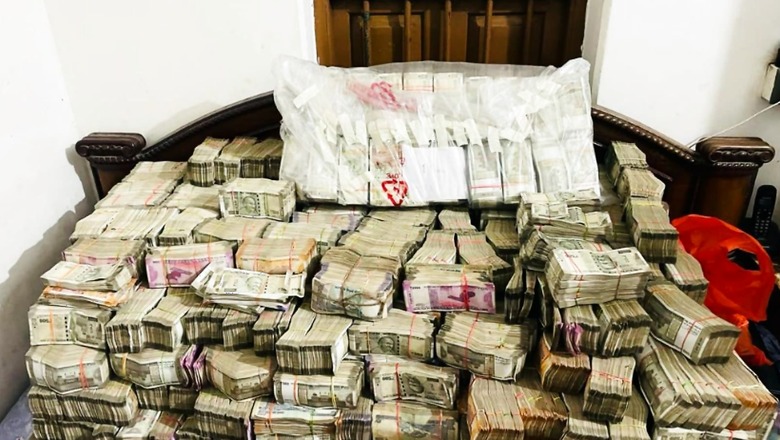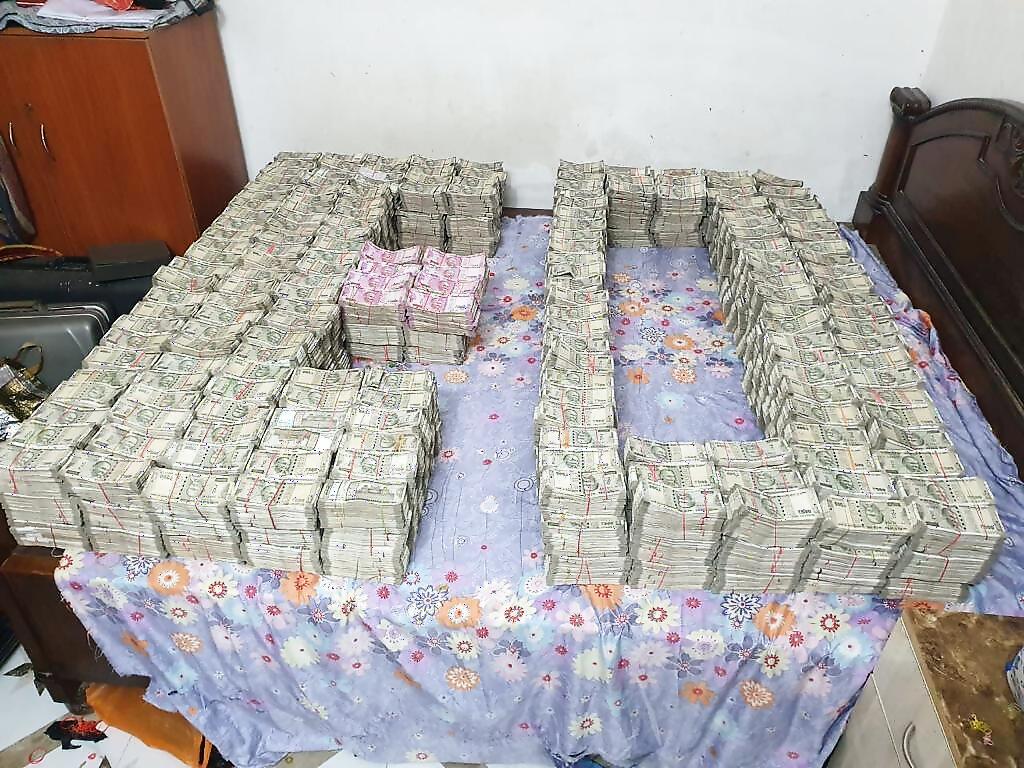
views
The Enforcement Directorate has been in the news recently for a series of raids involving businessmen, political leaders and bureaucrats. The federal agency on Saturday seized Rs 17 crore from a Kolkata-based businessman for Mobile Gaming Application fraud.
Recently, former Bengal minister Partha Chatterjee’s aide Arpita Mukherjee was raided by the ED and nearly Rs 27 crore in cash and gold. Earlier in May, it also seized around Rs 20 crore in cash in raids carried out at multiple locations including IAS officer Pooja Singhal in connection with the Jharkhand MGNREGA funds fraud case and mining scam.
From 2014 to 2022, the raids conducted by the ED have seen around 27-fold spike to 3,010 in comparison with 112 searches between 2004 and 2014.
As per 31 March 2022, the ED has the custody of assets worth over Rs 1 lakh crore, linked to cases under investigation by the agency. Of these, over Rs 57,000 crore are related to bank frauds and ponzi scam cases.
According to the ED website accessed on 11 September, 5,422 cases were registered under PMLA in 17 years. However, the conviction rate was very low as only 25 persons have been proved guilty.
Where does the seized money go?
In most cases, the ED officials are seen carrying huge stacks of money in big containers or arranging the money to spell the leader ‘E’ and ‘D’ before a press briefing. But what happens to the huge piles of hard cash after the raids?

Once the raid is conducted and cash is seized by the ED, it is kept with the agency at its office. Central probe agencies including the ED, CBI or Income Tax Department are empowered to carry out raids and investigations to seize movable and immovable property in cases of money laundering, scams, tax frauds or irregularities.
After the seizure, the assets are calculated and a report or ‘Panchnama’ is filed with the details of the seized cash and properties. The cash is then deposited in ED’s bank account with public sector banks like the Reserve Bank of India or State Bank of India. In case the cash or jewellery or other valuables have any marks, indication or evidence, then it is kept in a sealed envelope to be presented before the court as evidence.
Once the accused are proven guilty in court, the ED transfers the money to the government under Section-9 of PMLA which uses it for public spending.
In case of Bank fraud?
In cases, where the money has been taken in the form of loans by defaulters, the money is also transferred to banks where the money was borrowed.
Recently, in a massive move by the Enforcement Directorate pertaining to the bank fraud case, the agency transferred attached assets worth over Rs 8,441 crore to Public Sector Banks who suffered losses due to the bank fraud committed by fugitives Vijay Mallya, Nirav Modi and Mehul Choksi.
As of now, about RS 23,000 crore has been refunded to the Public Sector Banks by selling the properties of the accused whose assets were attached by the ED.
Limitations by Law
If the Enforcement Directorate seizes a property or cash under PMLA Act, it can impound the property for a maximum period of 180 days. During this six-month time, the ED has to prove that the seizure of the property is valid.
If it is not confirmed, the property would be automatically released from ED’s attachment. The accused can then challenge the confirmation in the Appellate Tribunal witing 45 days.
In case of properties which are attached by the agency, the accused can use the property until the case reaches the conclusion. However, during the period of attachment, the property remains out of bound for the accused until the trial is complete.
What if ED doesn’t transfer back?
In 1995, the Ed had seized Rs 7.95 lakh from Manak Kala, a travel agency owner for alleged violation of foreign exchange law. The ED had imposed a penalty of Rs 75 lakh on him and directed confiscation of Rs 7.95 lakh in 2014.
He challenged the order before Special Director (Appeals) which reduced the penalty and then before the Appellate Tribunal for Foreign Exchange which dismissed his appeal. He later approached the high court. The high court said confiscation of Rs 7.95 lakh from Kala’s office was unsustainable and upheld his appeal while setting aside the tribunal’s order.
In 2020, the Delhi High Court directed the ED to return the sum of Rs 7.95 lakh with interest “illegally” seized from Kala. The court directed the ED to return the seized amount along with an interest of six percent per annum from the date of seizure, that is 1995, till the date of payment.
Read all the Latest News India and Breaking News here




















Comments
0 comment